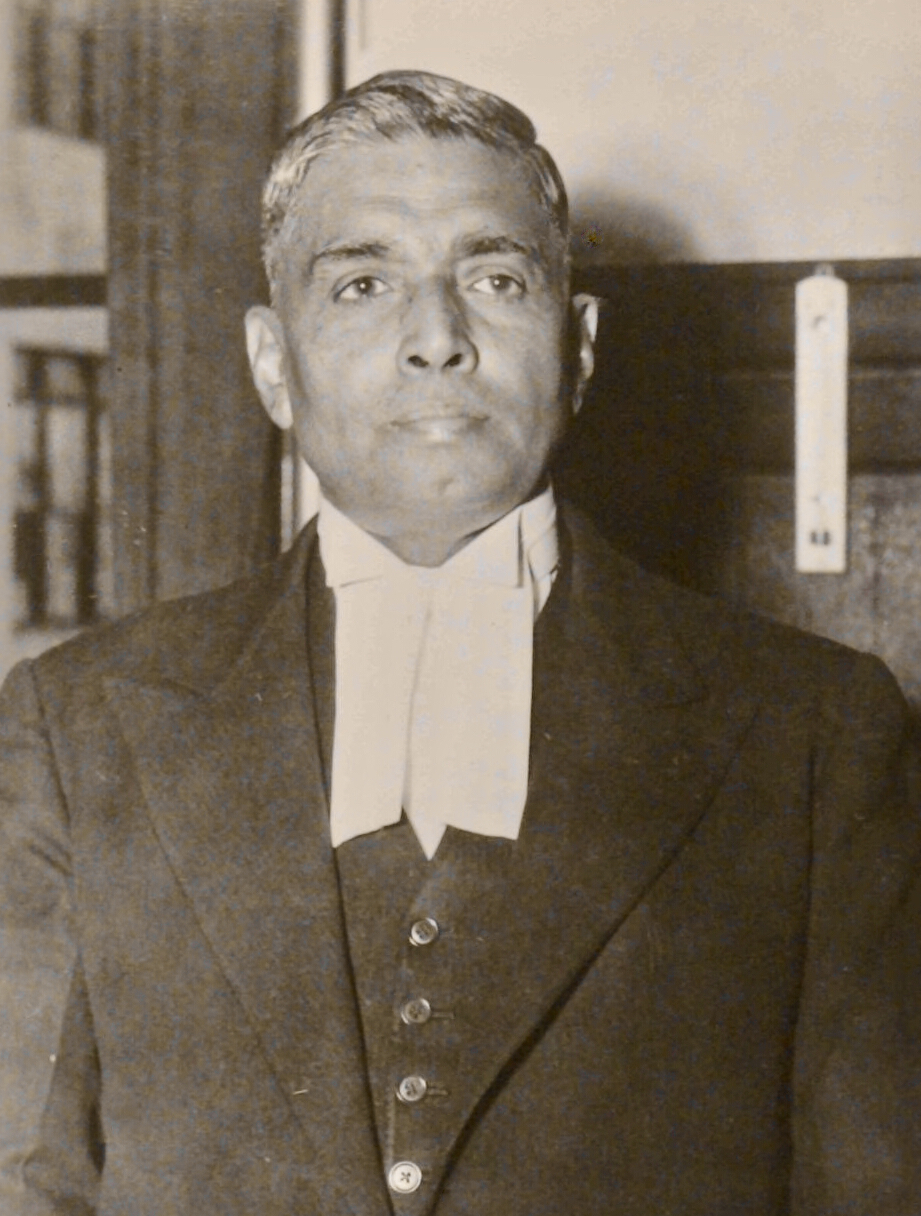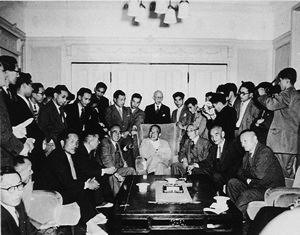Is the rule that made the modern internet to blame for breaking it? Is a forum legally analogous to a bookstore that might have a dirty book in it somewhere? Who’s responsible for all this junk everyone’s been putting in the internet tubes? And if we’re heading for a massive change in the way we handle illegal content online, are we at risk of destroying the best parts of the system we’re trying to fix?
We’re starting a look into how an Indian lawyer and judge from a relatively obscure background became a focal point of right-wing Japanese nationalism. Who was Radhabinod Pal, how did he end up a judge in the Tokyo Trials, and what led him to claim that there were no grounds to convict Japan’s leaders of any crime after World War II?
Oe Kenzaburo is about as different a writer as you can think of from Kawabata Yasunari, and yet he’s Japan’s second ever Nobel laureate in literature. What sort of concerns defined his work, and what can we learn from looking at him in conjunction with Kawabata?
We’re back with a new recording of one of the first cases we covered on Criminal Records. Bo Xilai was one of the rising stars of China’s Communist Party, but his political dreams came crashing down when a close business partner was found dead in mysterious circumstances.
We’re taking a look at the first of two Nobel laureates in literature from Japan: Kawabata Yasunari. Kawabata didn’t believe his work–focused on what he saw as a distinctly Japanese context–would translate out of the country. So what is it about his style that developed such a following?
We’re wrapping up our look at the Hatoyama political dynasty with some time on Hatoyama Iichiro (arguably Japan’s most reluctant politican) and his two sons Kunio and Yukio. Plus some thoughts on the legacy of the Hatoyama family and on dynastic electoral politics more generally.
Hatoyama Ichiro’s revenge tour culminates in finally reaching the top spot as PM and in the formation of the LDP. What does the torturous road it took to get there tell us about the man, and about the politics of his time?
A half-baked plot to replace the (maybe) true king of England with an impostor involved mind-controlling ointment, a loyalist uprising that never materialized, and some of the biggest political powers in Europe.
Hatoyama Kazuo was a reluctant politician; you can’t say the same of his son Hatoyama Ichiro, groomed from childhood to take up the family business (and to rise to the height of cabinet minister, something his father never did). This week is all about Ichiro’s prewar career, which culminated in a shot at the top job–that was snapped away at the last moment.
Surprise! We made a secret podcast just for our patrons. Want to hear even MORE of Isaac and Demetria talking…









